Bali Travel Guide for First Timers
This piece serves as a comprehensive manual designed to aid those exploring Bali for the initial time. Renowned as the Island of Gods, Bali is a reservoir of dynamic culture, serene natural vistas, and profound spirituality. This guide endeavors to facilitate first-time visitors in traversing through Bali and enables them to wholly embrace and value the distinctive scenery and customs of the island. Whether your quest is to discover Bali’s stunning natural marvels or to plunge into its deep-rooted culture, this manual is crafted to guarantee you extract the maximum richness out of your sojourn.
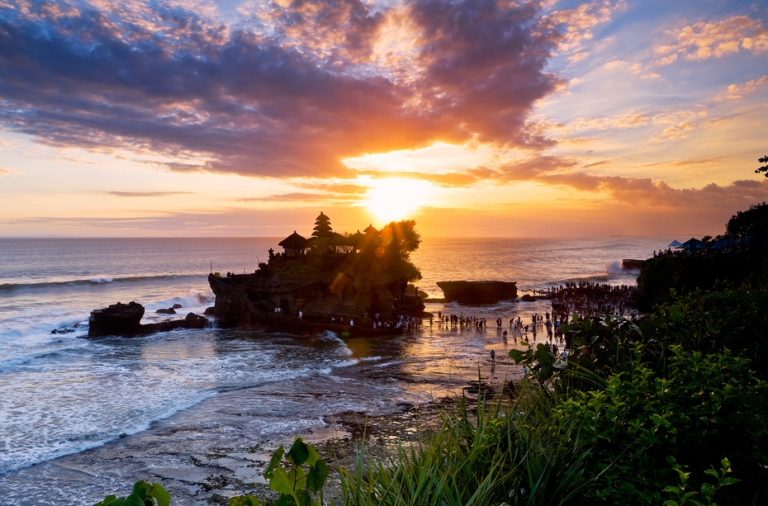
Introduction to Bali
Bali is much more than just a travel destination; it’s a mood, an aspiration, and a tropical state of mind. Nestled within the vibrant and diverse Indonesian archipelago, Bali stands out for its mesmerizing allure, drawing in travelers from around the globe with its breathtaking landscapes, intricate temples, and vibrant cultural tapestry.
Bali is a world-renowned island that offers a unique blend of the modern and the traditional, seamlessly merging its rich, ancient traditions with contemporary advancements. Its renowned charm is largely attributed to its diverse landscapes, from pristine beaches with shimmering waters to dense, lush forests that seem to whisper tales of the island’s long and storied past.
The island is a sanctuary where the sacred and the everyday exist side by side, enthralling visitors with its vivid cultural expressions, deeply-rooted spiritual practices, and a way of life that celebrates the synchrony between humans and nature. Bali’s culture is a fascinating amalgamation of music, dance, art, and religion, with myriad ceremonies and festivals displaying the island’s artistic spirit and religious devotion.
The island’s temples are not just architectural marvels but also significant cultural symbols, each narrating a different tale of divine interaction and spiritual significance. They are intricately designed, reflecting the islanders’ reverence for their deities and their artistic inclination. Visitors to these temples can observe and even participate in the myriad of rituals and ceremonies, gaining insight into the island’s unique spiritual landscape.
Bali is not just a picturesque tropical paradise but a land of profound cultural depth and diversity, where the ancient and the modern dance in harmony, offering a multifaceted experience for all who visit. Whether it’s the allure of its natural beauty, the depth of its cultural riches, or the warmth of its people, Bali offers a diverse and enriching experience, making it a must-visit destination on the global travel map.
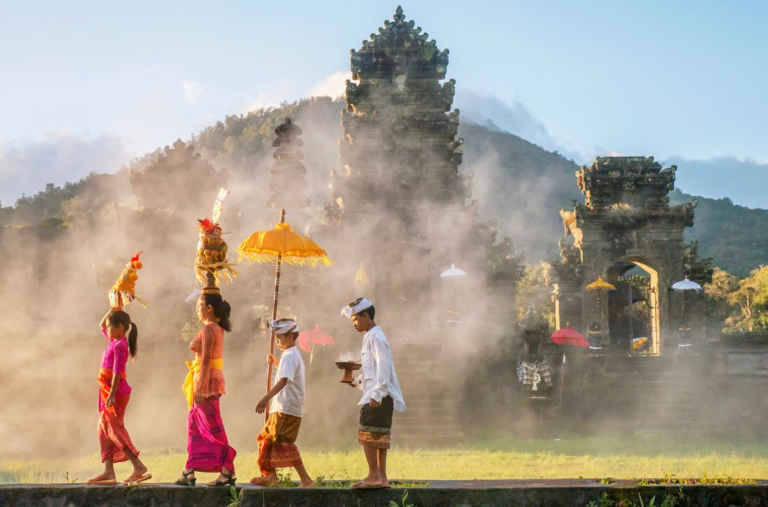
Best Time to Visit Bali
Bali, a tropical paradise, has its climatic conditions broadly classified into two seasons: the dry season and the rainy season. For travelers keen on exploring the exotic island with minimal weather disturbances, the months between April and October are highly recommended. This period, marked as the dry season, experiences a substantial reduction in rainfall, diminished humidity levels, and an abundance of sunlight, creating the perfect environment for a plethora of outdoor activities, beach ventures, and exploratory excursions.
During these months, visitors can revel in uninterrupted beach time, participate in water sports, and explore Bali’s stunning landscapes without the inconvenience of sudden rain showers and overly humid conditions. The pleasant weather also makes it favorable for those who wish to delve into Bali’s rich biodiversity, trek its scenic trails, or simply unwind by the beach, enjoying the serene ocean views.
Important Dates in Bali
When orchestrating a journey to Bali, integrating your travel itinerary with the island’s numerous indigenous ceremonies and festivals can significantly enhance the cultural richness of your experience. Bali is steeped in a wealth of traditions and customs, each with its unique significance, and witnessing them first-hand can offer deep insights into the spiritual and cultural fabric of the island.
- Nyepi (Balinese Day of Silence): Nyepi is a day of silence and self-reflection observed by the Balinese people. On this day, the entire island comes to a standstill, with no outdoor activities, light emissions, or noise allowed. Tourists are required to respect this day by remaining indoors and minimizing noise levels, allowing them to experience the spiritual atmosphere and to reflect on life and nature.
- Galungan: Galungan is another significant Balinese festival, signifying the victory of good (Dharma) over evil (Adharma). This festival sees the Balinese people engaging in various rituals, preparing elaborate feasts, and decorating their homes and temples with ornate bamboo poles (penjor) adorned with fruits, flowers, and leaves. Visitors can witness the elaborate celebrations, partake in the festive atmosphere, and gain a deeper understanding of Bali’s spiritual essence and communal bonds during this period.
By aligning your visit with such noteworthy events, you get the opportunity to immerse yourself in the living traditions of Bali, observe the local lifestyle and rituals, and absorb the spiritual and communal energies that are inherent to the island’s way of life, thus making your trip a more enlightening and enriching experience.
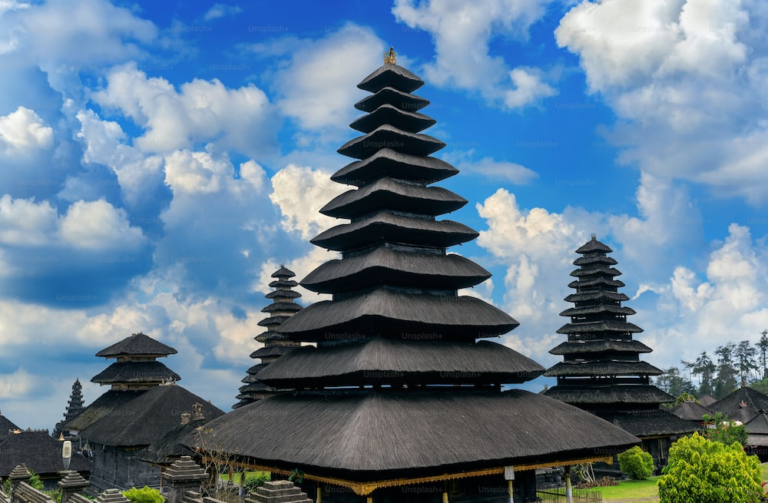
Popular Locations in Bali
When you delve into the diverse landscapes of Bali, every area provides a unique experience, introducing a different facet of the island’s charm. Here’s a deeper exploration of each mentioned locale.

Seminyak
Seminyak stands out as a contemporary and elegant district in Bali, attracting those with a taste for luxury and sophistication. It is dotted with high-end restaurants offering gourmet cuisine, extravagant resorts with top-notch amenities, and lively bars and clubs that bring the night to life, creating an atmosphere of indulgence. Whether you are a food connoisseur, a nightlife enthusiast, or someone who prefers the opulent lifestyle, Seminyak is the place to be, promising an unforgettable experience.
Canggu
Canggu is recognized as a tranquil coastal enclave, characterized by its relaxed ambiance, beaches that are a hit among surfers, and chic cafés serving delicious, health-conscious fare. It’s the perfect place for those who wish to unwind by the sea and engage in aquatic adventures, all while enjoying the bohemian café culture. With its combination of serenity and excitement, Canggu appeals to both the laid-back traveler and the thrill-seeker, offering a balanced and rejuvenating experience.
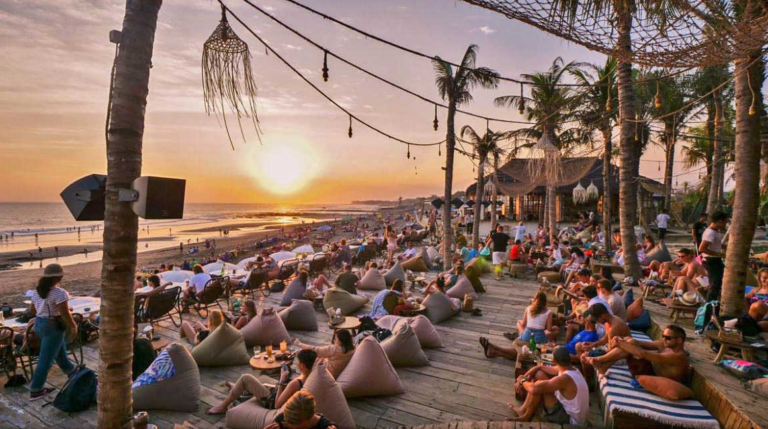

Ubud
Ubud, often referred to as Bali’s cultural epicenter, is nestled amidst verdant forests and scenic rice paddies. It is a hub for arts and spirituality, housing numerous art galleries displaying intricate local artwork, serene yoga retreats for those seeking inner peace, and vibrant markets selling a range of crafts and textiles. For those wanting to delve deep into Bali’s artistic heritage and spiritual practices, Ubud provides a rich and enlightening experience, unveiling the true essence of the island.
Nusa Dua
Nusa Dua is synonymous with elegance and leisure, featuring immaculate beaches, luxurious hotels, and a plethora of recreational water activities. It caters predominantly to those seeking a lavish and entertaining getaway, with its offerings of water sports, fine dining, and pristine surroundings. Whether you are a luxury traveler or an adventure enthusiast, Nusa Dua promises a delightful and varied experience, allowing you to indulge in both relaxation and excitement.
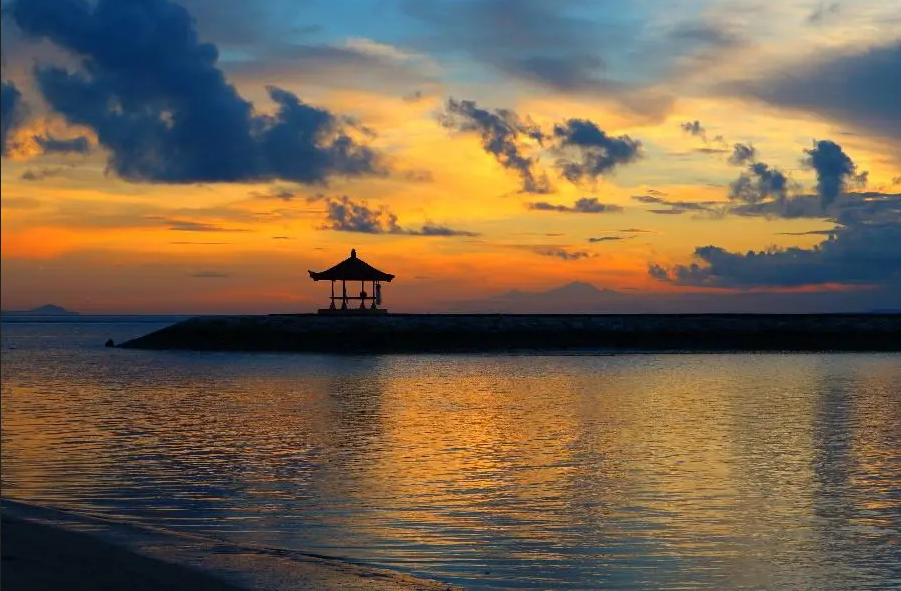
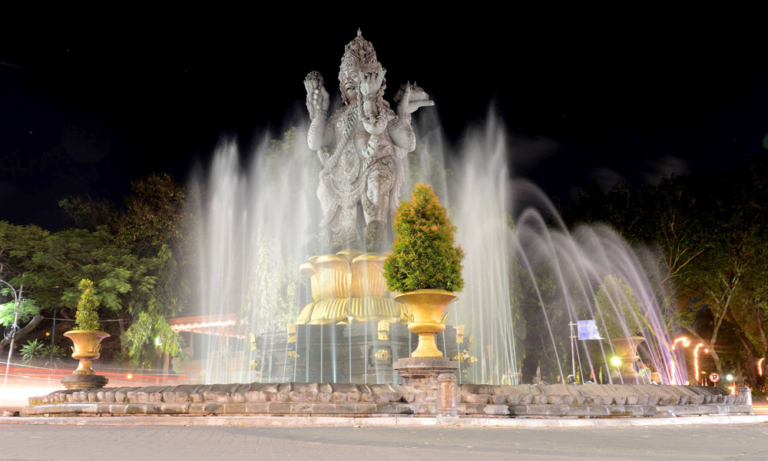
Denpasar
Denpasar, as the lively capital city of Bali, serves as a melting pot of modern comforts and age-old Balinese traditions. Visitors can explore diverse museums showcasing the rich history of the island, marvel at the architectural beauty of ancient temples, and savor the flavors of local cuisine at traditional eateries. Denpasar offers a taste of the local lifestyle, combining the hustle and bustle of urban living with the timeless allure of Balinese culture, making it a fascinating destination for cultural exploration and urban adventure.
Each location in Bali presents its distinct charm and character, offering a range of experiences to satisfy the diverse preferences of travelers. Whether you are looking to immerse yourself in luxury, seek spiritual enlightenment, explore the local culture, or simply relax by the beach, Bali has something for everyone.
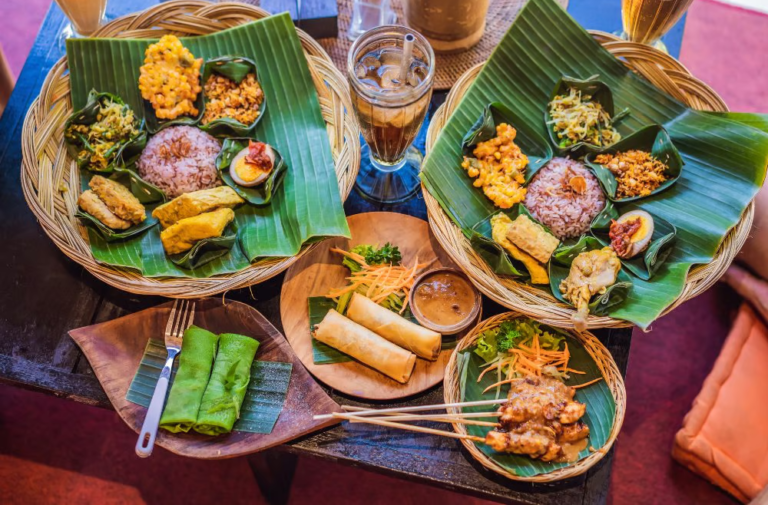
Culinary in Bali
Indulging in Balinese cuisine is akin to embarking on a flavorful journey, tantalizing the taste buds with an array of exquisite tastes and textures, each telling a story of the island’s rich cultural tapestry and abundant natural resources. The Travel Bali Guide for First Timers highly recommends delving into the local culinary scene to truly absorb the essence of Balinese culture.
Balinese cuisine is characterized by its bold and intricate flavors, often involving a multitude of spices, fresh vegetables, meat, and seafood, reflecting the island’s agricultural and coastal roots. The vibrant array of dishes ranges from the sweet and delicate to the spicy and savory, catering to a wide palate.
Bebek Betutu
This dish is a ceremonial staple, featuring duck stuffed with traditional spices, wrapped in banana leaves, and slow-cooked to perfection. It’s known for its tender and flavorful meat, often accompanied by spicy condiments and vegetables, offering a taste of Bali’s festive culinary spirit.
Lawar
Lawar is a harmonious blend of finely chopped meat, vegetables, grated coconut, rich spices, and sometimes, fresh blood. This mix is a Balinese classic, presenting a concoction of flavors and textures, usually served alongside rice. Every region in Bali has its unique variant of Lawar, reflecting local tastes and preferences.
Babi Guling
Babi Guling, or suckling pig, is one of Bali’s most renowned dishes. It involves a whole pig being seasoned with a mixture of turmeric and other spices before being spit-roasted. The resulting meat is succulent and rich, typically served with rice and vegetables, offering a mouthful of diverse flavors.
Balinese Sweets and Snacks
In addition to these savory delights, Balinese cuisine also offers a plethora of sweet treats and snacks, like Dadar Gulung (green pancake roll) and Klepon (sweet rice cake ball), which are as rich and diverse as the savory options. These sweets are not just delicious but also hold cultural significance, often prepared for religious ceremonies and festivities.
Culinary Experiences in Bali
For those keen to immerse themselves deeper into the Balinese culinary world, partaking in cooking classes or food tours can provide insightful experiences. These activities offer hands-on learning about the local cooking techniques, ingredient selection, and the cultural significance behind each dish, allowing visitors to bring a piece of Bali’s culinary heritage back home.
Traditional Markets and Restaurants
Exploring local markets and eateries is integral to experiencing authentic Balinese cuisine. These places are brimming with fresh produce, aromatic spices, and a variety of prepared foods, providing a glimpse into the everyday culinary life of the Balinese people.
By exploring the culinary landscape of Bali, visitors can experience a symphony of flavors, textures, and aromas, each offering a unique insight into the island’s rich cultural and agricultural heritage. The diverse and sophisticated Balinese cuisine is sure to leave a lasting impression, making it a pivotal part of the Guide for First Timers in Bali.

What to do in Bali
Bali, the jewel of Indonesia, is not just about the serene beaches and vibrant nightlife; it’s a paradise filled with an array of activities to satisfy every traveler’s interest. From thrilling water sports to serene hiking trails, Bali offers something for everyone.
Water Sport Activities
Bali is a hub for water sports enthusiasts, offering a plethora of options that are bound to get the adrenaline pumping. Jet-skiing across the blue waters, parasailing high above the sea, and exploring the underwater world with scooter rides are just a few exciting options available. Numerous providers across the island offer these services, ensuring safety and providing necessary equipment, allowing both seasoned pros and absolute beginners to enjoy the thrill of water sports in the beautiful Balinese waters.
Surfing and Diving
Bali’s versatile coastline is dotted with spots ideal for surfing and diving. Beginners can find gentler waves and professional instructors to guide them, while experienced surfers can challenge themselves with Bali’s famous breaks. Diving enthusiasts can explore vibrant coral reefs, encountering diverse marine life and even discovering underwater wrecks. Whether you’re a professional diver, a newbie surfer, or somewhere in between, Bali’s abundant coastline has a spot for you.
Hiking
For those who prefer land to sea, Bali’s magnificent landscapes offer various hiking trails, each promising an unforgettable experience. Mount Batur’s trek rewards hikers with a panoramic sunrise view from its summit, revealing the natural beauty of Bali. The Campuhan Ridge Walk in Ubud is another picturesque trail, offering tranquility away from the hustle and bustle, enveloped by lush greenery and fresh air. These trails are not just about physical activity but also about connecting with Bali’s breathtaking nature, providing a peaceful retreat for the soul.
Visit Hindu Temples
A trip to Bali would be incomplete without experiencing its spiritual essence by visiting its numerous sacred Hindu temples. Tanah Lot, perched atop a rock formation amidst the sea, offers spectacular sunsets, while Uluwatu Temple, located on a clifftop, combines architectural beauty with panoramic ocean views. Each temple has its unique charm and history, reflecting Bali’s rich cultural and spiritual heritage. Visitors should remember to adhere to the visiting guidelines, dressing modestly and behaving respectfully, to maintain the sanctity of these holy places.
Enjoy Balinese Culture
Immersing oneself in Balinese culture is another enriching experience Bali offers. Attend traditional dance performances which tell tales of Bali’s myths and legends through intricate movements and vibrant costumes. Explore art exhibitions displaying the creativity and craftsmanship of local artists. Participate in craft workshops and learn the skills and techniques behind Bali’s famed handicrafts. By engaging in local traditions and arts, visitors can gain deeper insights into the Balinese way of life and the island’s rich cultural tapestry.

Transportation in Bali
Navigating around Bali is relatively straightforward, yet diverse, allowing visitors to choose from a variety of options according to their needs and preferences. Among the available choices, renting scooters and using online transportation apps are quite prevalent.
Rent Scooter
Renting a scooter is one of the most popular and convenient modes of transportation in Bali, particularly favored by solo travelers and couples. It offers unrivaled flexibility, allowing explorers to traverse through the narrow lanes and secluded spots, unveiling the true essence of the island at their own pace.
While renting a scooter is economically efficient and provides a sense of freedom, it is crucial for riders to possess a valid International Driving Permit (IDP) and to be well-versed with the local traffic rules. The roads can be chaotic, especially in bustling areas, and cautious driving is imperative to avoid accidents. Helmets are a mandatory safety measure, and having a functional GPS or a reliable map can aid in easier navigation.
Online Transportation Apps
For those who prefer not to drive, online transportation apps like Grab and Gojek have emerged as a blessing. These apps have significantly transformed the way people commute in Bali, offering convenient, swift, and budget-friendly rides. They are especially useful for short-distance travel within well-frequented areas like Seminyak and Ubud.
Users can easily book rides through these apps, selecting the type of vehicle they prefer, and paying either by cash or through online transactions. The pricing is usually fixed and is displayed before confirming the ride, eliminating the need for bargaining. Additionally, these apps also offer food delivery services from a wide array of local eateries, adding another layer of convenience for travelers.

Tips for Traveling in Bali for First Timers
Navigating Bali as a first-timer necessitates thoughtful planning and consideration. Begin by researching visa requirements; some visitors may enjoy visa-free entry, while others must secure a visa on arrival. Secure reliable internet access, which is crucial for navigating and efficient exploration of the island—consider utilizing travel and local apps to enhance your experience. Show respect to the local customs and traditions, ensuring your interactions with locals are harmonious and respectful. Prioritize your health by staying hydrated, consuming safe food and water, and having necessary medications at hand.
Entry Visa for Bali/Indonesia
Understanding the visa requisites for Bali/Indonesia is imperative for all travelers. Several countries have the privilege of visa-free entry, while others must obtain a visa upon arrival. Therefore, a careful review of your respective country’s visa policies can help prevent any unnecessary complications and ensure a smooth entry into the island. Do note that overstay penalties can be quite severe, hence the emphasis on meticulous planning and adherence to visa durations.
Apps & Internet
Reliable internet connectivity is vital in the modern travel landscape. It aids in seamless navigation, accommodation booking, transport, and even food ordering. Leveraging travel and local apps can significantly enhance the ease with which one can explore Bali, allowing tourists to uncover hidden gems and optimize their travel experience. Many places in Bali offer Wi-Fi; however, purchasing a local SIM card upon arrival is recommended for uninterrupted connectivity.
Safety & Cultural Norms
Observing and respecting the local customs and traditions of Bali is a fundamental aspect of responsible tourism. Bali is steeped in tradition and spirituality, and a conscientious approach to local norms can foster a respectful and harmonious interaction with the local population. This includes dressing modestly when visiting temples and participating in local ceremonies. Being informed about and adherent to safety guidelines and advisories is equally critical to ensure personal safety and avoid unnecessary risks.
Health
Maintaining robust health is crucial during your Bali exploration. Staying well-hydrated and consuming clean and safe food and water is paramount to avoid any health-related setbacks. Bali’s tropical climate can be dehydrating, and consuming street food may pose risks, so it is recommended to drink bottled or purified water and eat at reputable eateries. Having a basic first aid kit and any necessary medications can act as a precautionary measure, ensuring an uninterrupted and pleasant stay.
By meticulously adhering to this detailed guide, first-time visitors to Bali can navigate the island’s diverse landscapes, vibrant culture, and rich traditions with ease and confidence. This thorough approach ensures a harmonious integration with the local environment and a richer, more immersive experience of the enchanting island, leaving travelers with lasting memories and a deeper understanding of Bali’s unique charm.
Frequently Asked Questions
Which areas should I consider staying in?
For first-timers, Seminyak is popular for its beaches and nightlife, Ubud for its cultural and natural attractions, Kuta for its vibrant energy, and Nusa Dua for luxury resorts. Your choice should align with your interests.
Is English widely spoken in Bali?
Yes, English is commonly spoken in tourist areas, including hotels, restaurants, and attractions. However, learning a few basic Indonesian phrases can enhance your travel experience.
What’s the local power socket type in Bali? Do I need an adapter?
Bali uses the European-style two-pin round plug (Type C/F). Depending on your device’s plug type, you might need an adapter. It’s also essential to note that the standard voltage is 230V with a frequency of 50Hz.
Is tap water safe to drink in Bali?
No, tap water in Bali isn’t considered safe for consumption. It’s recommended to drink bottled water and avoid ice unless you’re sure it’s from a purified source.
How safe is street food in Bali for first-timers?
Street food in Bali is delicious and a must-try. However, first-timers should choose busy stalls (indicating high food turnover) and observe the cleanliness of the preparation area. Starting with cooked foods can help your stomach adjust.
